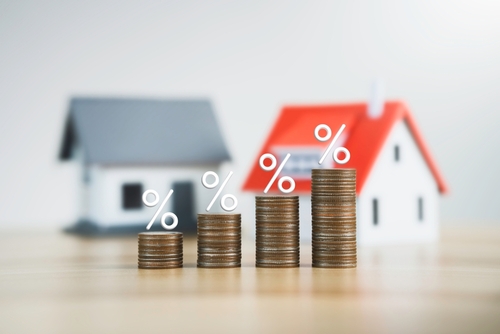Changes to empty home council tax rates could generate an additional £540m from Monday, a lettings agency claims.
Since April 2013, billing authorities have had the power to charge council tax premiums of 50% on homes that have been unoccupied for two years or more. In April 2019, this was adjusted so that premiums of 100% could be applied to homes that have sat empty for two years or more.
However from April 1 this year - that’s Bank Holiday Monday - the power to charge a premium of 100% of a properties council tax bill will now apply to homes that have been empty for 12 months, although in some cases exceptions will apply.
Ahead of the changes, lettings agency Benham and Reeves analysed the current level of long-term empty homes across England that have been classified as such for a minimum of six months, to reveal where councils could potentially see the biggest boost to council incomes from empty homes with the new legislation in place.
The research shows that across England there are some 261,189 homes that have been classed as empty for six months or more. With the average cost of council tax coming in at £2,065 per property, this means that councils across England currently collect an estimated £540m in council tax on empty homes each year.
Should these homes continue to sit empty for up to 12 months or longer, this would see the council tax charged per property climb to an average of £4,130, netting councils a total of £1.1 billion in council tax on empty homes over the course of a year.
The North West is the region where councils stand to see the biggest boost to council tax incomes on empty homes. With some 42,454 empty homes, councils in the region already collect an estimated £91m per year in council tax on vacant properties, with the new legislation seeing this potentially double to £182.1m per year.
In the South East, council tax collected on empty homes could potentially double to £146.3m from the £73.1m that’s currently collected.
London ranks third, where an estimated £65.2m is currently collected in council tax on an annual basis from the 36,210 empty homes found across the capital, with this figure potentially set to double to £130.4m.
Director of Benham and Reeves, Marc von Grundherr, comments: “We’re yet to see the government attempt to resolve the housing crisis in a meaningful way and not only have they neglected the issue of supply for many years, but it’s quite frankly scandalous that so many homes are sitting empty across the nation when we’re in desperate need of more housing stock.
“While new changes to the council tax premiums charged on empty homes shows that they are aware of the problem, it’s fair to say that it’s unlikely to act as the deterrent they expect when it comes to forcing these empty homes back into circulation.
“However, these changes do have the potential to bring a sizable boost to the coffers of our local councils and we can only hope that this additional income is utilised to help address the issue of housing availability.
“When you consider the money they stand to make, it does highlight the benefit of utilising these empty homes to at least address the issue of supply within the rental sector. Rather than pay a 100% council tax premium, these properties could be generating rental income, while also providing tenants with the homes they desperately need. ”
We're excited to announce that we're working on building a shiny new website for readers of Landlord Today! As part of this process, commenting on articles will be temporarily disabled. We look forward to sharing our new and improved Landlord Today website with you shortly!






/Conservative-logo400x310.png)


.png)

(1).png)










